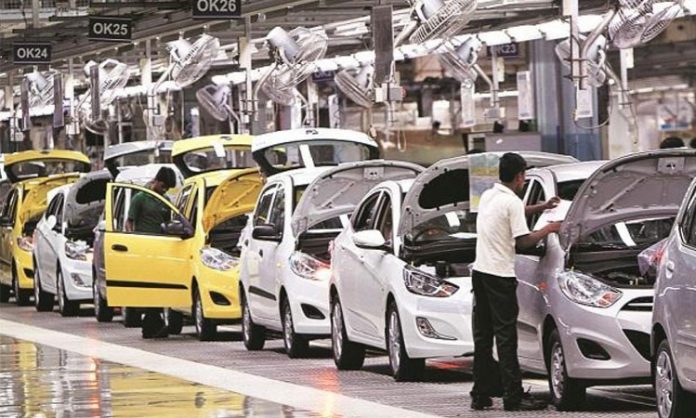
This article has been written by Sakshi Jain, pursuing the Diploma in Intellectual Property, Media and Entertainment Laws from LawSikho.
Table of Contents
Introduction
“Within every brand is a product, but not every product is a brand”, this highly expedient quote written by the ‘Father of Advertising’, Mr. David Ogilvy is capable of encapsulating the significance that trademarks hold in molding consumer choices. The Indian Automobile Industry is considered as one of the fastest-growing industries in the world. As of 2020, the Indian automobile market holds the position of being the fifth largest in the world. Because of the unmatched scale of demand, a large number of global automotive giants are striving to rule the Indian market. An extensive number of market studies have determined Indian consumers to be a highly diverse group with varied choices. No wonder, that in order to cater to such a diverse population of over 1 billion, the brands leave no stone unturned in establishing its ‘consumer association’ along with its ‘brand value’.
The term ‘Brand Value’ is not always determined by the product. Rather, it is determined by the fact whether consumers are willing to pay more out of their pockets for one brand over the other. Brand value helps in creating an image of desirability, and trademarks play a crucial role in establishing brand value. The purpose of this article is to make the readers aware of the key role of trademarks in the Indian Automobile Industry in establishing the reputation of a brand amongst its potential customers.
The significance of trademark in the Indian automobile sector
Consumers are exposed to hundreds of alternatives for products/services every day; therefore they need to be given proper guidance that can help them in considering between these alternatives and make their choices thereof. Consequently, such products/services must be named. Trademark is precise, the medium for the naming of such products/services in the market.
A trademark or a brand can be referred to as anything that helps in identifying and distinguishing the products or services provided by a company from its competitors. Owning trademarks allows automobile-based companies to prevent their competitors from using the same or confusingly similar trademark. By enabling companies to differentiate themselves and their products from those of their competitors, trademarks play a pivotal role in the marketing strategies of these automobile companies, contributing to the definition of the image and reputation of the company and the products that it provides in the eyes of potential consumers. It helps in giving a company a significant advantage over its competitors in the marketplace.
Often, satisfied consumers develop an emotional attachment to the trademark. They perceive the automobile company as bearing the mark as sharing a brand identity or image, which reflects a set of desired attributes, benefits, or values. Additionally, trademarks serve these automobile companies in advertising and selling their products, resulting in serving the economy in a general sense by helping in rationalizing the commercialization of products. Trademarks therefore without any doubt, play a significant role in India’s automobile industry as well the economy of the country.
The case of Toyota: once in a century challenge
The significance that trademarks hold in establishing a brand value is evident by the fact that one of the leading car companies, TOYOTA had to pay special attention in its past for building a brand value, with the aim of making its name and its trademark a global success. In the year 1936, the company modified its name from Toyoda to Toyota to make it catchier. In the year 1990, its logo started appearing too. The present Mark of Toyota consists of three ovals, wherein the two perpendicular ovals in the center signify a relationship of mutual trust between Toyota and its customers. These ovals combine together to denote the letter “T” which stands for Toyota. The space that is there in the background of the Mark implies a global expansion of Toyota’s technology and the unlimited potential that it holds for the future. TOYOTA is an example of one of those brands that were earlier defined by their products. But as of this day, its trademark has without any doubt, become significant to the brand. Hence, it is safe to say that trademarks inevitably play a crucial role in establishing the reputation of a brand amongst its potential customers, like it happened in the case of TOYOTA.
Trademark disputes in the Indian automobile sector
The inclination of a large number of global automotive giants towards the Indian market is not something that is new, nor are the trademark disputes in the automobile sector. Let’s have a look into a few of these disputes;
To begin with, in the year 1982, Suzuki Motor, a Japanese automobile company was welcomed by the Indian automobile market. The company collaborated with Maruti Udyog Limited and the Government of India to manufacture cars in India. At the same time, in the year 1882, another company, with clearly dishonest and mala- fide intention adopted the name “Suzuki India Limited”. This marked the beginning of a long-going battle between the two, which lasted for over two decades. Finally, the Hon’ble High Court of Delhi recognized the rights of this Japanese tycoon and thereby accorded “SUZUKI” the recognition of being a well-known trademark in India. This recognition is an assertion of the Indian judiciary acknowledging the acquaintance of the consumers of India with automobile brands.
The growing significance of trademarks in the Indian automobile sector has led to the unfolding of various complicated issues. To quote an example, let’s look into the much-acclaimed case of Toyota Jidosha Kabushiki Kaisha v. M/S Prius Auto Industries Ltd. & Ors., a case that led the courts of India to extrapolate the notion of trans-border reputation. While deciding this matter in finality, the Hon’ble Apex Court of India held that merely acquiring goodwill globally would not be sufficient while elucidating the meaning of the term ‘trans-border reputation’. It is crucial that the mark in dispute has earned goodwill in India at the relevant time (refers to any time before the date of adoption of the mark by the opposite party). This judgment resulted in paving a path of caution for other brand owners as well, especially global conglomerates, to exercise greater vigilance in safeguarding their Intellectual Property rights while entering the Indian automobile market.
With a number of global giants aiming to cater to the Indian automobile market, a bizarre trend of “mass deterrence” is taken up by brands nowadays to prevent any sort of unauthorized use of their trademarks. In order to augment their position in the market, brands often go for legal proceedings, even against startups. This trend is no different in the automobile sector. In a victory against its infringers, Luxury Bavarian carmaker ‘BMW’ recently won a case against an e-rickshaw manufacturer of India, who was using a name that was way too similar to BMW. In this case, Om Balajee Automobile India Private Limited was in the business of selling an e-rickshaw under the name “DMW ” since the year 2013. In the year 2017, the carmaker approached the Delhi High Court, claiming that the use of the name “DMW ” came off as a dishonest act with a mala fide intention of trying to take undue advantage of the established reputation and goodwill of BMW in the market. The defendant in its defense argued that the products manufactured by the two companies were of different nature, and they had huge differences in relevant consumers. This argument by the defendant was rejected by the Hon’ble Court. The Court in its decision agreed that the logo of DMW was visually as well as phonetically similar to BMW’s, and was very much likely to mislead any man of ordinary intelligence. This judgment had a rippling effect in assessing standards for well-known trademarks, passing off the claim, and trans-border reputation.
In the recent past, a substantial number of disputes have surfaced against non- automobile companies in the automobile sector. A recent example of the same is the famous case of Monte Carlo Fashions Ltd. entering into an agreement with Skoda Auto India Pvt. Ltd. In this case, Monte Carlo had given a license to Skoda India allowing it to use the trademark “Monte Carlo”. The agreement comes a year after the Court had admitted a trademark violation plea for infringement of trademark “MONTE CARLO” owned by Monte Carlo against Skoda India from using the brand name with respect to a new ‘Monte Carlo’ edition car. Under the agreement between the two corporate organizations, Skoda India had obtained a License from Monte Carlo to use the trademark, Monte Carlo, in the whole of India in respect of its products comprising only of cars, cars accessories, and spare parts as well as on packaging, promotional and advertising material associated therewith. Ultimately, in this case, the two companies decided to settle the dispute amicably. It was agreed through mutual consent that Monte Carlo will give Skoda India a License, thereby allowing using its brand name.
Counterfeiting in the automobile sector
For the past several decades, counterfeiting has resulted in plaguing the global market. The automotive industry is no exception to this and has been rounding up against counterfeits for decades. Researchers, in a study commissioned by FICCI’s Committee against Smuggling and Counterfeiting Activities Destroying the Economy (CASCADE), have identified that the automobile sector of India is one of the most vulnerable when it comes to counterfeiting. The study exhibited that around 30% of the automobile components market in India is counterfeited. IPR herein has played an intrinsic role in providing necessary protection to Intellectual Property owners against such counterfeits.
The Competition Commission of India, in the year 2015, imposed a heavy penalty of INR 42,00,00,000 on Hyundai Motor India Ltd. and several other automobile companies for not making their original spare parts, an act that was leading to unfair trade practices and giving rise to the act of counterfeiting. The Commission further rejected the claim of Hyundai that designs of their spare parts are duly protected by unregistered copyright and trade secret and thereby refused to grant an exemption to Hyundai under Section 3(5) of the Competition Act, 2002, a section which protects exclusive rights that are granted under IPR. Although this order was subsequently stayed by the Hon’ble Supreme Court of India, it is pertinent to note that this case elucidated the seriousness of the Indian institutions when it comes to tackling the invasion of the act of counterfeiting in its automobile sector.
While Sections 102, 103, and 135 of the Trade Marks Act, 1999 provides for the remedies that are available to trademark holders against instances of counterfeiting and penalizing falsification of trademarks, one must also know about the other preventive measures that brand owners can adopt, including consumer awareness and proactive enforcement of their trademark rights via criminal raids and recording their trademarks with the Customs Authority of India for monitoring. The government herein can play an important role by employing industry-specific remedies, such as introducing certifications for automotive components and spare parts, introducing legislation to increase consumer protection on e-commerce websites, and providing strict penalties that can act as a deterrent to such counterfeits.
Conclusion
To sum it up, the quote by Walter Landor “Products are made in the factory, but brands are created in the mind” elucidates the imminent association of the automobile sector and trademarks. We are living in the 21st century, where automobiles represent much more than what a machine does. These global automotive giants immensely rely on their image and reputation amongst their potential consumers. With vigorous changes in the field of branding and marketing, one can safely conclude that trademarks play an extremely crucial role in facilitating the consumer consortium with automobile brands.
References
- https://www.wipo.int/edocs/pubdocs/en/wipo_pub_653.
- https://www.financialexpress.com/auto/car-news/intellectual-property-in-the-indian-auto-industry-and-why-its-critical/1607473/.
- https://www.patentwire.co.in/wp-content/uploads/2019/05/Role-of-IP_Auto-Industry.pdf.
Students of Lawsikho courses regularly produce writing assignments and work on practical exercises as a part of their coursework and develop themselves in real-life practical skills.
LawSikho has created a telegram group for exchanging legal knowledge, referrals, and various opportunities. You can click on this link and join:
 Serato DJ Crack 2025Serato DJ PRO Crack
Serato DJ Crack 2025Serato DJ PRO Crack









 Allow notifications
Allow notifications


